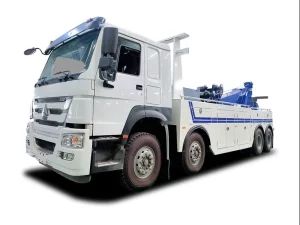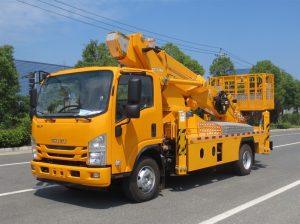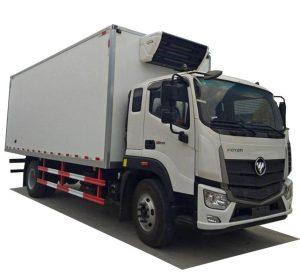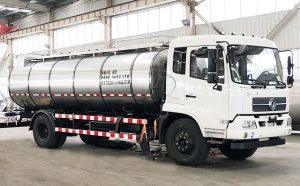Monday to Saturday - 8:00 -17:30
Service Truck International: Your Comprehensive Guide to the Best Service Trucks
Service trucks play a crucial role in various industries, offering mobility and convenience for field operations. This article explores the world of service trucks on an international scale, focusing on features, benefits, types, and how to choose the right one for your needs. We’ll also look at practical examples, industry standards, and frequently asked questions to provide a comprehensive understanding of service trucks.
What is a Service Truck?
A service truck, also known as a service vehicle or maintenance truck, is a mobile workshop designed for various tasks requiring immediate attention on-site. They come equipped with tools, equipment, and storage facilities to facilitate maintenance and repairs across different industries such as construction, agriculture, and transportation.
Key Features of Service Trucks
- Versatile Workstation: Service trucks often include toolboxes, hoists, and other specialized equipment that allow technicians to perform repairs conveniently.
- Mobility: Being mobile means that service trucks can travel directly to job sites, reducing downtime and improving efficiency.
- Customizable Design: Many manufacturers offer customizable options for service trucks to meet specific industry needs.
Importance of Service Trucks in Various Industries
Service trucks serve crucial functions in numerous industries. Their importance cannot be overstated, given the efficiency and flexibility they bring to operations.
Construction Industry
In construction, service trucks are essential for on-site repairs and maintenance of heavy machinery. They help ensure that equipment remains operational, minimizing delays and maximizing productivity.
Agriculture
Agricultural service trucks provide farmers with tools and parts needed for machinery repairs, maintenance, and field adjustments, thus enhancing farming efficiency.
Transportation and Logistics
For truck fleets, service trucks make routine maintenance easier and more accessible. With a service truck, mechanics can perform oil changes, brake repairs, and more without having to tow the vehicle to a garage.
Types of Service Trucks
Different industries might require specific types of service trucks based on their operational needs. Here are some common types:
Mechanical Service Trucks
Equipped with hydraulic lifts, these trucks assist in vehicle repairs by elevating the vehicle for better access to the underside. They typically carry essential tools like wrenches, screwdrivers, and diagnostic equipment.
Emergency Service Trucks
These trucks are specially designed for emergency repairs, often equipped with lights and sirens to respond quickly to incidents. They may carry equipment for roadside assistance, such as air compressors and battery jumpers.
Tool Trucks
Similar to mobile hardware stores, tool trucks provide an array of tools and equipment on-site, making it easier for workers to find what they need without traveling long distances.
Key Components of a Service Truck
| Component | Description |
|---|---|
| Tool Storage | Secure compartments for storing tools and equipment, often lockable to prevent theft. |
| Hydraulic Lift | Used to elevate vehicles for easier access to parts during repairs. |
| Air Compressor | Enables technicians to power pneumatic tools directly on the site. |
| Generator | Provides power for electric tools and lighting in remote areas. |
| Safety Equipment | Includes first aid kits, fire extinguishers, and reflective signs for on-site safety. |
How to Choose the Right Service Truck
Selecting the best service truck for your needs involves several considerations. Here are some tips to guide your decision:
Assess Your Needs
Evaluate the types of tasks your service truck will perform. Consider the tools you need to carry, the space required, and the frequency of travel to job sites.
Budget Considerations
Service trucks can vary significantly in price. Set a budget that reflects not only the purchase price but also ongoing expenses such as maintenance and fuel.
Customization Options
Look for trucks that offer customization options to suit your specific operational requirements, such as specialized storage compartments or tool configurations.
Manufacturer Reputation
Research different manufacturers and their reputation in the industry. A well-known brand generally ensures quality, reliability, and support services.
International Standards for Service Trucks
Understanding international standards governing service trucks can help in choosing the right vehicle and ensure compliance with local regulations.
Safety and Emission Regulations
Many countries have strict safety and emission regulations. Ensure that your service truck meets these standards to avoid legal penalties and ensure worker safety.
Quality Certifications
Look for service trucks that have quality certifications such as ISO 9001, which indicates the manufacturer adheres to international quality management standards.
Practical Examples and Tips for Using a Service Truck
Daily Maintenance Tips
- Conduct daily inspections to check for leaks, tire pressure, and fluid levels before heading out.
- Keep tools organized and labeled to easily locate what you need during emergency repairs.
Case Study: Construction Site Efficiency
A regional construction company implemented service trucks equipped with hydraulic lifts and tool storage units. This change reduced equipment downtime by 30% and improved overall job site efficiency.
Frequently Asked Questions (FAQ)
What are the benefits of using a service truck?
Service trucks provide mobility, reduce downtime, and enhance the efficiency of field operations by bringing tools and equipment directly to the work site.
How much does a service truck cost?
The cost of a service truck can range from $30,000 to over $100,000, depending on the make, model, and customization options.
What industries use service trucks?
Industries such as construction, agriculture, transportation, and emergency services frequently use service trucks for on-site repairs and maintenance.
Can service trucks be customized?
Yes, many manufacturers offer customization options for service trucks, including specialized storage, tool arrangements, and equipment configurations tailored to specific industry needs.
What should I look for when purchasing a service truck?
Consider your specific needs, budget, manufacturer reputation, and available customization options when purchasing a service truck.
How often should I perform maintenance on my service truck?
Daily inspections are recommended, with comprehensive maintenance checks every 3 to 6 months or based on usage frequency to ensure optimum performance.









